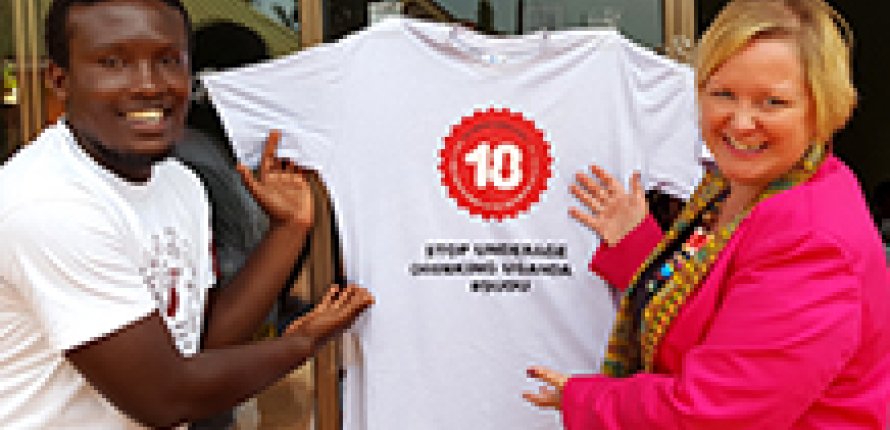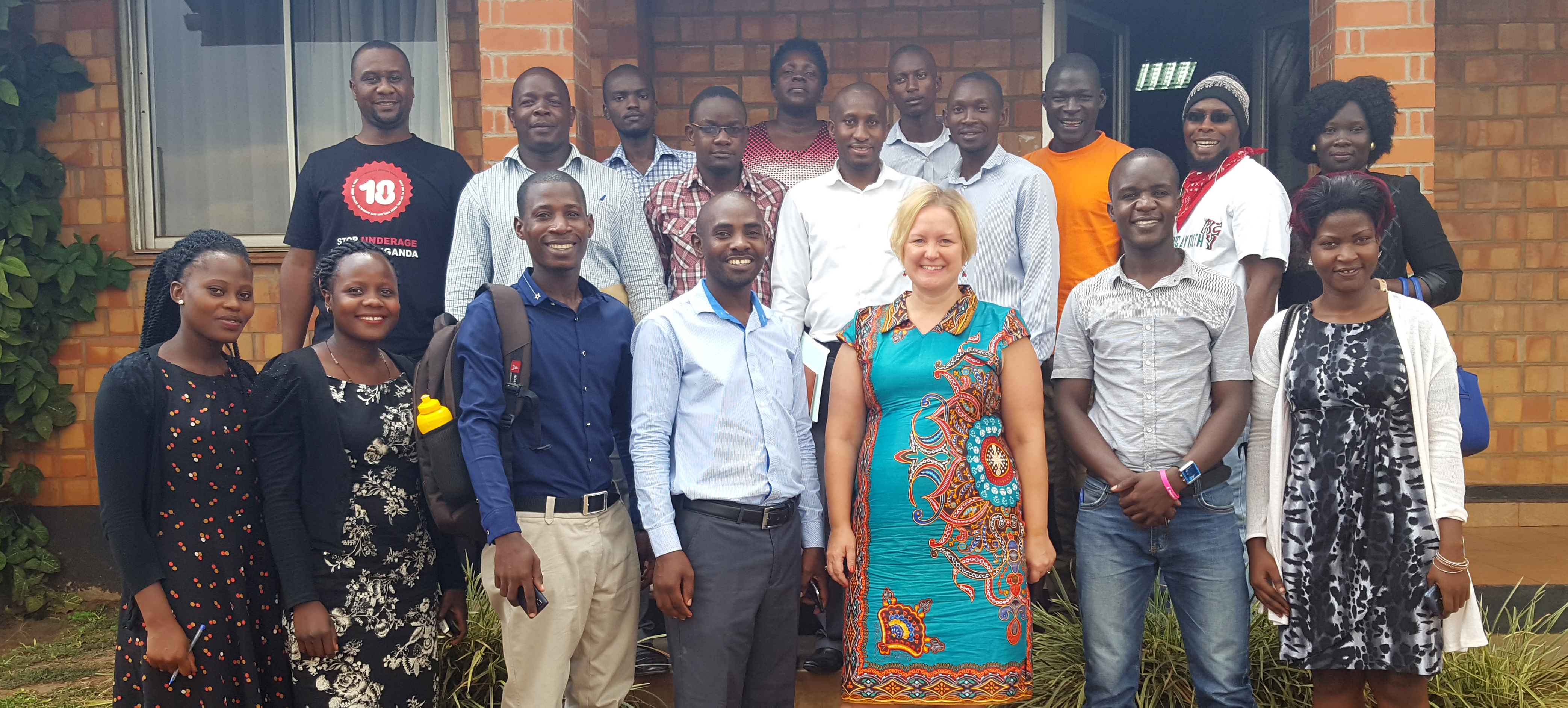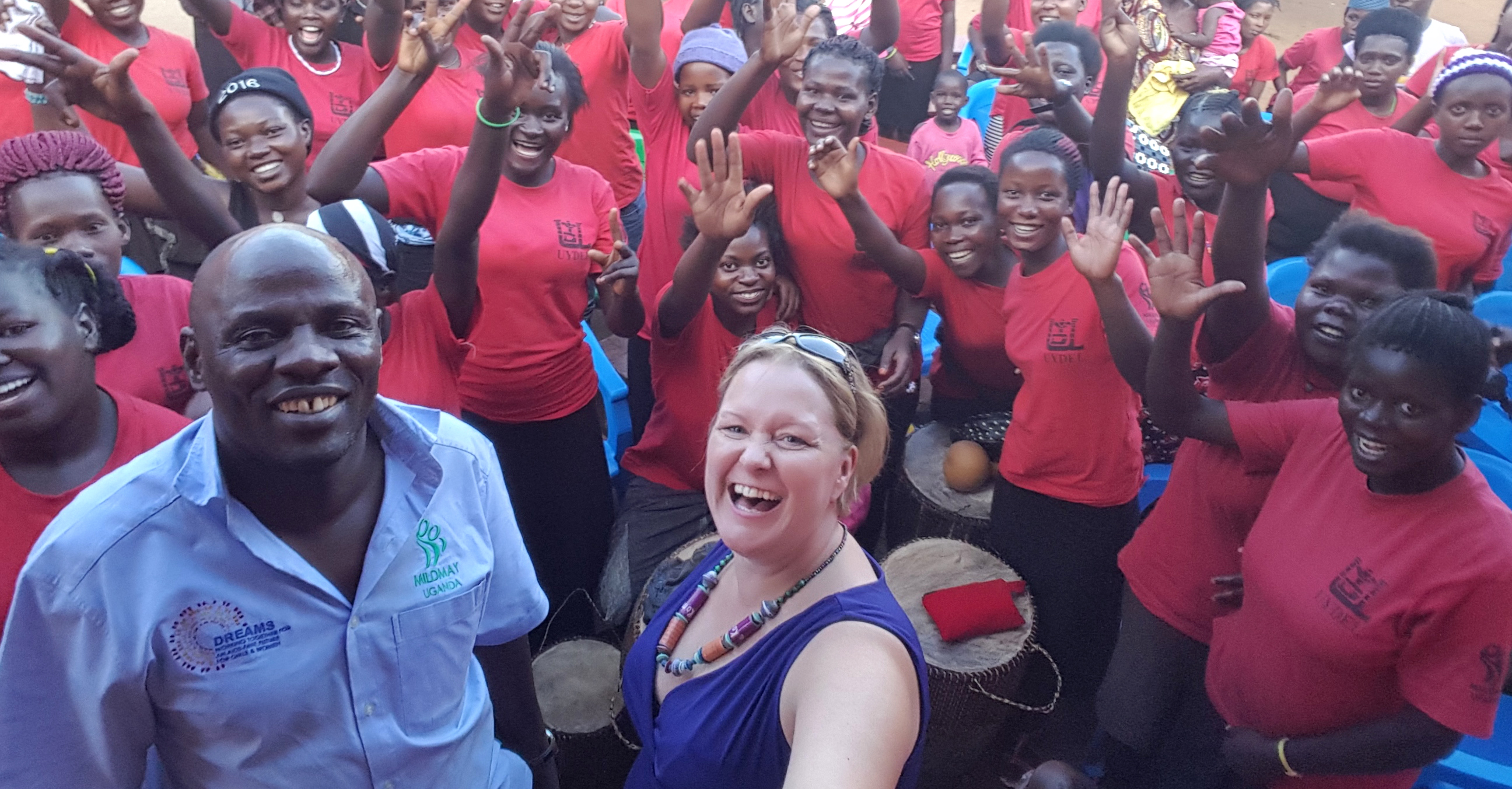Making an Impact Through Fulbright

Monica Swahn, Professor of Public Health, Georgia State University
2016-2017 Core Fulbright U.S. Scholar to Uganda
The first segment of my Fulbright Scholar Flex Award was a whirlwind of new ideas, collaborations, briefings and brainstorming. My flex award enabled me to split up my fellowship into three separate segments, and I recently completed my first rotation.
My situation is a bit unusual because I have already conducted research in Uganda prior to my first two-month Fulbright segment, so it was fairly seamless to return to the country and get started. The goal of my award is to conduct research on alcohol use, gender-based violence and HIV/AIDS among vulnerable youth, but also to build capacity and implement an alcohol research center at the School of Public Health at Makerere University. Setting up the center is a daunting task that will take time and several visits. As such, the Fulbright Flex Award was ideal as it will allow me the opportunity to focus on the center’s development and implementation over a three-year period.

More importantly, I am so grateful for this prestigious Fulbright award because it gives me the much needed protected time and also a formal role within my host institution to move these ambitious goals forward. Some of the highlights of this first amazing segment has been to:
- brief a Member of the Ugandan Parliament and senior government officials on my research findings on the prevalence and correlates of alcohol use and related harm
- train researchers and NGO leaders in grant writing to support their research agendas
- visit the rural Uganda Youth Development Link centers and talk to several hundred girls participating in the U.S. funded DREAMS project (Determined, Resilient, Empowered, AIDS Free, Mentored, Safe)
- submit a grant proposal to the World Bank to better assess the extent to which alcohol use, gender-based violence and HIV intersects among vulnerable youth in Uganda
- engage with NGO leaders and media on the scope of alcohol problems among youth in Uganda
- train students in social development on research and dissemination to impact social issues
- develop a plan for a new alcohol and drug prevention research center to strengthen the infrastructure, serve stakeholders and produce research to drive change in the region
While these were just a few activities, they stand out as very impactful experiences for me both personally and professionally and will serve as a platform for the continued work in this field and to build capacity to dramatically reduce the scope of alcohol misuse and related harm in Uganda. This is a key priority for me and creates great synergy and leverages other initiatives including a study abroad program on alcohol and harm that I also teach in Uganda.
Just as I returned to the United States and my home institution at Georgia State University reflecting on what I should prioritize for my next rotation, I learned that the Ugandan government finally passed legislation to ban the sale of alcohol in small sachets (plastic bags), a policy change we have supported for years as our research shows that underage youth prefer buying alcohol in these sachets. Of course it has been a tremendous amount of work to get all this done, but it has also been truly inspiring to work with many amazing collaborators. Like the African proverb states “If you want to go fast, go alone. If you want to go far, go together”.

The impact of the Fulbright fellowship is profound, and most importantly it allows me to work with several teams so that we can go far and drive real change. There is a priceless beauty in this teamwork, and I am already looking forward to my next segment in summer 2017 to build and staff our new center and conduct much needed research to prevent the spread of HIV in vulnerable communities.
